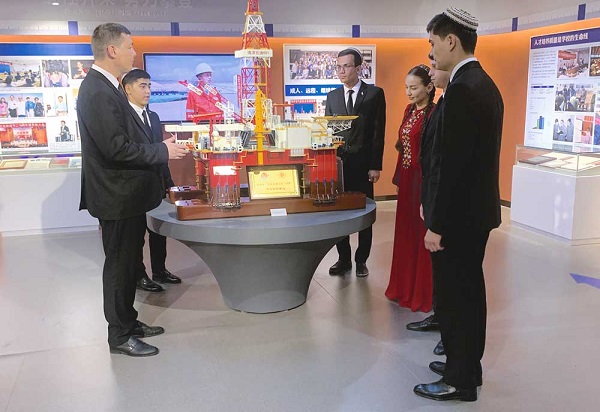As part of the actively developing academic exchange between Turkmenistan and China, a group of students from the Yagshygeldi Kakayev International University of Oil and Gas (IUOG) is currently undergoing intensive academic and industrial training at China University of Petroleum (CUP) in Beijing, reports Neutral Turkmenistan.
This initiative is part of broader cooperation aimed at enhancing the qualifications of Turkmen specialists and integrating China’s advanced educational experience into the local academic process.
The training became possible thanks to Memorandums of Understanding signed in 2023 between IUOG, the China National Petroleum Corporation (CNPC), and CUP. These agreements are designed to stimulate academic exchange, refine professional skills, and incorporate successful Chinese educational practices into Turkmen universities.
The current three-week program includes deep immersion in theoretical knowledge as well as hands-on exposure to cutting-edge technologies. Students are visiting university laboratories, advanced teaching and research centers at CUP. A key feature of the program involves familiarization visits to institutions such as the Geological Museum of China, the Science and Technology Museum, and CNPC’s production facilities—giving students insight into real-world industrial processes.
As part of the program, students are taking short-term courses in areas such as the fundamentals of Chinese language and culture, green energy and carbon emission reduction, the future of oil and gas, and energy cooperation across the Silk Road region.
These topics are carefully chosen to reflect pressing global trends, including the greening of the energy sector, carbon neutrality goals, and the strategic importance of resource transportation in the Eurasian region.
Parallel to the training in China, another group of students from IUOG is undergoing industrial training at the Turkmenistan branch of CNPC International Ltd.
This dual-track approach allows students to harmoniously integrate advanced international experience with valuable domestic practice within a single educational cycle, which is crucial for cultivating well-rounded specialists.
The organization of such training programs for highly qualified personnel in Turkmenistan’s oil and gas sector plays a pivotal role in adapting international best practices and establishing a sustainable professional education model for the next generation.
Against the backdrop of the global shift toward green energy and the active implementation of smart technologies—including artificial intelligence, the Internet of Things, and automation—such initiatives gain particular significance. China exemplifies systemic progress in this arena, where higher education institutions are closely integrated with industrial clusters, and academic programs are aligned with the realities of Industry 4.0, equipping young people with essential skills for the future. ///nCa, 15 July 2025

